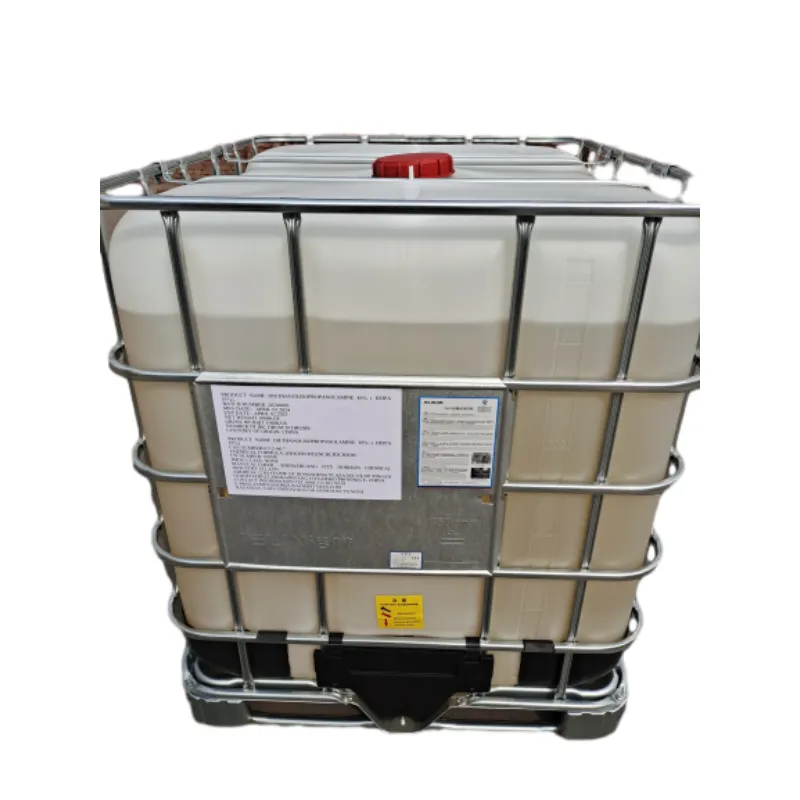
chemical solvents
The Role and Impact of Chemical Solvents in Various Industries
Chemical solvents are ubiquitous in numerous industries and research sectors, playing a vital role in the formulation of products and the facilitation of chemical reactions. These substances, which can dissolve other compounds to form a solution, are essential in processes ranging from pharmaceuticals to paints, cleaning agents, and beyond. Understanding the types, applications, and implications of chemical solvents is crucial for optimizing their use and mitigating potential risks.
Types of Chemical Solvents
Chemical solvents can be broadly categorized into two groups polar and non-polar solvents. Polar solvents, such as water, ethanol, and acetone, have molecules with a significant dipole moment, enabling them to effectively dissolve ionic and other polar compounds. Non-polar solvents, including hexane, toluene, and chloroform, are better suited for dissolving non-polar substances like oils and fats. The choice of solvent often depends on the chemical nature of the solute. For instance, in pharmaceutical formulations, water is frequently employed due to its safety, availability, and ability to dissolve a wide range of substances, while organic solvents are used for the extraction of active pharmaceutical ingredients (APIs) due to their enhanced solubility profiles.
Applications in Industries
1. Pharmaceuticals Chemical solvents are indispensable in drug formulation and manufacturing. They facilitate the dissolution of APIs, aid in the extraction of compounds from raw materials, and enhance the bioavailability of medications. For example, ethanol is commonly used as a solvent in tinctures, while acetone is employed in various laboratory applications due to its efficiency in dissolving a wide range of organic compounds.
2. Paints and Coatings In the paint industry, solvents are used to dissolve pigments, resins, and additives, resulting in a homogeneous mixture that can be applied easily. Solvents like toluene and xylene not only improve the application characteristics but also aid in the drying process by evaporating after application, leaving behind a solid film. However, the volatile organic compounds (VOCs) found in many solvents pose environmental concerns, leading to a move towards environmentally-friendly alternatives, such as water-based paints.
chemical solvents

3. Cleaning Agents Many cleaning products rely on chemical solvents to remove dirt, grease, and stains. Solvents like isopropyl alcohol and ethylene glycol ethers are effective in breaking down oily residues and facilitating easier cleaning. It's important to balance efficacy with safety, as some solvents can be hazardous to health and the environment, necessitating stringent regulations and careful handling procedures.
4. Extractive Processes In the food industry, solvents play a crucial role in the extraction of flavors, colors, and nutrients from raw materials. For instance, supercritical CO2 extraction is gaining traction as a green alternative for flavor extraction, minimizing the use of traditional organic solvents and improving product purity.
Environmental and Health Implications
Despite their advantages, the use of chemical solvents raises significant environmental and health concerns. Many organic solvents are classified as VOCs, which can contribute to air pollution and respiratory problems when inhaled. Furthermore, some solvents can be toxic, posing risks to workers and requiring the implementation of safety protocols and protective measures.
The push for sustainable practices has led industries to explore alternative solvent options. Green chemistry principles encourage the use of safer, more biodegradable solvents or solvent-free processes. For example, ionic liquids and supercritical fluids are being researched extensively for their potential to replace harmful solvents without compromising performance.
Conclusion
Chemical solvents are integral to many industrial processes, with applications spanning pharmaceuticals, coatings, cleaning, and extraction. While they offer numerous benefits, their associated risks necessitate careful consideration and management. The ongoing evolution towards greener alternatives and safer practices highlights the importance of innovation in minimizing the environmental and health impacts of chemical solvents. As industries continue to adapt, a focus on sustainability will be key to leveraging the benefits of these essential substances while safeguarding human health and the planet.
-
Buy High-Quality Trichloroisocyanuric Acid for Sale | TCCA 90% SupplierNewsAug.30,2025
-
Pure Sodium Dichloroisocyanurate Dihydrate | Powerful DisinfectantNewsAug.29,2025
-
Industrial Chemicals: Quality & Purity for Every IndustryNewsAug.28,2025
-
Nitrile Rubber Honoring Strict Production StandardsNewsAug.22,2025
-
Aspartame Ingredients Honoring Food Safety ValuesNewsAug.22,2025
-
Fertilizer for Balanced Plant NutritionNewsAug.22,2025
-
Cyanide Gold Processing with High Purity AdditivesNewsAug.22,2025
Hebei Tenger Chemical Technology Co., Ltd. focuses on the chemical industry and is committed to the export service of chemical raw materials.
-

view more DiethanolisopropanolamineIn the ever-growing field of chemical solutions, diethanolisopropanolamine (DEIPA) stands out as a versatile and important compound. Due to its unique chemical structure and properties, DEIPA is of interest to various industries including construction, personal care, and agriculture. -

view more TriisopropanolamineTriisopropanolamine (TIPA) alkanol amine substance, is a kind of alcohol amine compound with amino and alcohol hydroxyl, and because of its molecules contains both amino and hydroxyl. -

view more Tetramethyl Thiuram DisulfideTetramethyl thiuram disulfide, also known as TMTD, is a white to light-yellow powder with a distinct sulfur-like odor. It is soluble in organic solvents such as benzene, acetone, and ethyl acetate, making it highly versatile for use in different formulations. TMTD is known for its excellent vulcanization acceleration properties, which makes it a key ingredient in the production of rubber products. Additionally, it acts as an effective fungicide and bactericide, making it valuable in agricultural applications. Its high purity and stability ensure consistent performance, making it a preferred choice for manufacturers across various industries.





